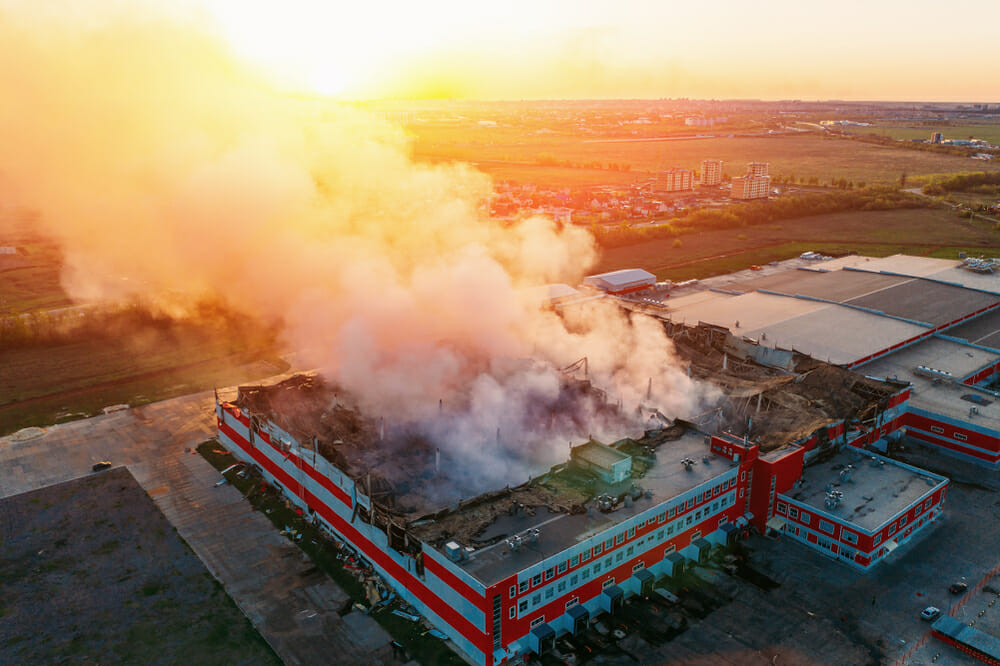Introduction
Have you ever wondered what it might be like to guide and navigate policyholders through the complex trenches of the insurance claim process? Perhaps you’ve even considered exploring a career in this field, but you’re unsure where to commence? Within this guide, we at Insurance Claim Recovery Support offer insights on how to become an independent insurance adjuster—a crucial role in our industry that could make the difference between a frustratingly drawn-out claim journey and a smoother, more comprehensible one.
Brief Overview of the Role of an Independent Insurance Adjuster
Operating outside the realms of traditional insurance firms, independent insurance adjusters work on a contract basis, often called upon to handle claims in remote locations or when in-house staff adjusters are overloaded. A profession that combines investigation, negotiation, and decision-making, an independent insurance adjuster serves as an intermediary between the insurance company and the claimant, ensuring a fair and prompt settlement.
The Benefits of Becoming an Independent Insurance Adjuster
Becoming an independent insurance adjuster opens a vista of opportunities to freelance enthusiasts; it avails the freedom to manage your workload and time. This line of work can be particularly rewarding for those who enjoy the mix of field and desk work, thrive in rectifying complex issues, and have a knack for negotiating fair settlements.
The Unique Role of Independent Insurance Adjusters in Texas
In regions like Texas, where conditions can remind us of Mother Nature’s fury with hail, hurricanes, floods, and fires, the role of an insurance adjuster is exponentially significant. They provide invaluable support to policyholders struggling with physically and emotionally draining after-effects of such adversities, as well as dealing with convoluted insurance claims processes.
All set to level up to this crucial role in the insurance industry? Here’s a snapshot of what it takes to become an independent insurance adjuster:
- Age and eligibility: Must be at least 18 years with valid driving and vehicle documents.
- Education: Having a degree can be a strong asset, though prior experience in the field and a high school diploma or GED are also acceptable.
- Licensing: Requirements vary by state, and some states like Texas require a unique licensure process. Familiarize yourself with the local regulations.
- Experience: Start with an entry-level claims adjuster position; building both your skills and network for an independent adjuster career.
- Continuing Education: Stay updated with industry practices and regulations.

Step 1: Understand the Requirements and Skills Needed
To become an independent insurance adjuster, it’s important to first understand the educational requirements, essential skills, and the significance of software and certifications in the field.
Educational Requirements for Becoming an Independent Insurance Adjuster
The minimum educational requirement to become an insurance adjuster is typically a high school diploma or GED. However, having a degree in insurance, finance, or a related field can give you an edge. What truly matters is your understanding of insurance policies and regulations, as well as your ability to handle claims effectively. To gain this understanding, you need to complete a pre-licensing course and pass the state exam. This course, offered by various claims adjuster training schools, provides comprehensive knowledge about insurance policies, regulations, and claim handling procedures.
Essential Skills for an Independent Insurance Adjuster
Becoming an independent insurance adjuster requires more than just formal education. You need certain soft skills to excel in this field:
- Self-discipline: As you’ll be working independently, it’s crucial that you maintain a strong work ethic and remain self-motivated.
- Project Management: The ability to multitask and handle multiple claims simultaneously is key.
- Computer Skills: You need to be proficient in certain independent adjuster software programs.
- Organization and Attention to Detail: These skills ensure accuracy and avoid costly errors.
- Communication Skills: Being able to communicate clearly and effectively is essential for daily interaction with claimants and other stakeholders.
Understanding the Role of Xactimate Software in Claims Adjusting
In the insurance adjusting industry, proficiency in the industry-standard claims writing software, Xactimate, is critical. This software is widely used by adjusting firms, and you won’t be able to successfully close claims until you learn to use it effectively. Training courses like the Tactical Xactimate Training offered by AdjusterPro can help you acquire these skills.
The Importance of Carrier Certifications for Independent Adjusters
Carrier certifications are often required to work claims for specific insurance companies. These certifications validate your knowledge and skills, making you more attractive to potential employers. We at Insurance Claim Recovery Support encourage our adjusters to obtain such certifications to enhance their career prospects.
In conclusion, becoming an independent insurance adjuster requires a mix of formal education, essential soft skills, software proficiency, and relevant certifications. In the next step, we’ll explore how to obtain your adjuster license.
Step 2: Obtain Your Adjuster License
The next step to become an independent insurance adjuster involves getting your insurance adjuster license. Licensing requirements can vary by state, so understand the specifics of your state.
The Process of Obtaining an Adjuster License in Texas
If you are in Texas, for instance, you’ll need to pass the state exam before applying, submit your fingerprints, and apply online using Sircon with an application fee of $50. But it doesn’t stop there. After getting your license, you must also apply for reciprocal licenses in states you are most likely to work in, such as those on the Gulf Coast or Eastern states, which often have a high volume of claims.
The Importance of Training Courses in Preparing for the Licensing Exam
Preparing for the state exam requires an understanding of insurance policies and regulations, as well as effective claim handling procedures. A pre-licensing course offered by recognized claims adjuster training schools can be extremely beneficial in this respect. For instance, AdjusterPro provides comprehensive courses that prepare students for state licensing exams. We, at Insurance Claim Recovery Support, can vouch for the usefulness of such courses, as they equip you with the necessary knowledge and confidence to pass the exam.
Addressing the Difficulty of the Florida Adjuster License Exam
For those who are concerned about the difficulty of the licensing exams, such as the Florida Adjuster Exam, it’s important to note that while the exam is challenging, it is not insurmountable. The test does not contain any questions about subjects outside the scope of the exam practice material. Therefore, with the right preparation and study materials, you can certainly pass the exam and obtain your license.

Obtaining your adjuster license is a crucial step in your journey to become an independent insurance adjuster. It not only validates your skills and knowledge but also opens up opportunities for you to work in various states and handle a wide range of claims. In the next section, we will discuss how to gain experience and expand your knowledge in the field.
Step 3: Gain Experience and Expand Your Knowledge
Now that you’re licensed, it’s time to put your knowledge into practice and start building your career as an independent insurance adjuster. Experience and continuous learning are key elements in this profession.
How to Land Your First Insurance Adjusting Job
Starting your first job as an independent insurance adjuster may seem daunting. But remember, every expert was once a beginner. To get your foot in the door, treat your job search as a job itself, and be proactive in reaching out to employers. Contact the HR departments at major adjusting firms to inquire about openings and their hiring process. Make sure your resume is tailored specifically to the claims industry with a clear understanding of what employers want.
When you get an opportunity, take it. Be ready to deploy quickly, especially during catastrophe season. The quicker you can respond, the more valuable you are to the adjusting firm and the insurance company.
The Role of Major Adjusting Firms in Providing Experience
Major adjusting firms are invaluable in providing the hands-on experience you need to become an independent insurance adjuster. They often have a multitude of insurance companies as clients, so you may handle claims for several insurers, often multiple at once. This gives you a wide range of experiences and helps you build your skills in different areas of claims adjusting.
The Importance of Continuing Education and Training Courses
Continuing education and further training courses are vital in this ever-evolving industry. At Insurance Claim Recovery Support, we understand the importance of keeping up to date with the latest trends, industry regulations, and claim handling procedures.
For instance, proficiency in Xactimate, the leading estimating software in the insurance industry, is a crucial skill for an insurance adjuster. Training courses like the Adjuster Success Method can help you develop a systematic approach to launching your career and successfully closing your first claims.
In insurance adjusting, lifelong learning is not an option, it’s a necessity. The more knowledge and skills you acquire, the more valuable you become in the market.
In the next section, we will discuss networking and how to get on the rosters of desired employers.
Step 4: Network and Get on Desired Employer Rosters
The journey to become an independent insurance adjuster doesn’t stop at gaining experience and building your skills. The road ahead requires leveraging your connections, becoming part of professional networks, and capitalizing on opportunities that come your way.
The Role of Networking in the Insurance Adjusting Industry
Networking plays a crucial role in the insurance adjusting industry. Remember the saying, “It’s not just about what you know, but who you know”? This is particularly true in this industry. By joining local and national industry associations, attending events, and actively participating in insurance job boards, you increase your visibility and chances of getting noticed by potential employers.
Establishing connections with industry professionals can open doors to opportunities that you may not find elsewhere. It allows you to learn from the experiences of others, stay updated with industry trends, and create relationships that can lead to potential job opportunities.
How to Get on the Rosters of Desired Employers
Getting on the rosters of your desired employers requires a strategic and intentional approach. Start by reaching out to HR departments of major adjusting firms to inquire about openings and their hiring process. Be proactive in presenting your resume, highlighting your skills and experiences tailored to the claims industry.
Don’t limit yourself to the largest 2 or 3 firms. Carriers are spreading their contracts around to medium and even small firms to meet demand. It’s also essential to follow up on your job applications and personal contacts diligently. This shows your interest and commitment to the opportunity.
Finally, keep your licenses current and in good standing. Be ready to deploy quickly, especially during catastrophe season. Employers appreciate adjusters who can respond promptly when needed.
In short, networking and getting on the rosters of desired employers require persistence, initiative, and the ability to seize opportunities when they arise. As we at Insurance Claim Recovery Support always say, treat your job search as a job in itself, and you will not be disappointed.
In the next section, we will discuss the importance of staying compliant and up-to-date in your journey to become an independent insurance adjuster.
Step 5: Stay Compliant and Up-to-Date
In the ever-evolving world of insurance adjusting, it is not just enough to become licensed. You must also stay compliant with the ongoing licensing requirements and stay updated with the latest industry trends and changes.
The Importance of Staying Compliant with Licensing Requirements
When you become an independent insurance adjuster, you are required to comply with certain licensing requirements. What many new adjusters may not realize is that these requirements do not end once you receive your license. For instance, some states require adjusters to renew their licenses periodically, which could range from annually to every four years.
Failure to renew your license on time can lead to its expiration. Should this happen, you may face penalties or even revocation of your license if you continue to practice. In the worst-case scenario, revocation could mean having to start all over again with the licensing process.
The Role of Continuing Education Credits in Maintaining Licensure
Moreover, many states require adjusters to complete a certain number of continuing education (CE) hours to maintain their licenses. These CE courses are meant to keep you up-to-date with the latest developments in the insurance industry, including changes in policies, regulations, and claim handling procedures.
Continuing education is not just about fulfilling a requirement; it is about becoming a better adjuster. At Insurance Claim Recovery Support, we believe that continuous learning is key to providing the best service to our clients. We encourage our adjusters to regularly attend relevant courses and programs to stay abreast of the latest industry trends and regulations. These can be obtained through a variety of reputable claims adjuster training schools.
Staying compliant and updated is not just a matter of keeping your license; it is about being a responsible and competent adjuster. As an independent insurance adjuster, your knowledge and skills directly impact the outcomes of the claims you handle. Thus, investing in continuous learning and staying updated with the laws and regulations is not just a requirement – it is your responsibility to your clients and yourself.
Understanding the Job Market and Salary Expectations
The Job Outlook for Independent Insurance Adjusters
With the ever-increasing number of natural disasters, coupled with the regular occurrence of personal and commercial property damage, the demand for skilled independent insurance adjusters is on the rise. However, it’s important to note that the job market can be competitive. Success in this field not only requires technical skills but also solid networking abilities.
Joining professional associations and attending industry events may help you connect with other professionals in the field and potentially lead to job opportunities. Moreover, staying updated on industry news and trends can give you a competitive edge and help you make informed decisions about your career.
Salary Expectations for Independent Insurance Adjusters in Texas
The compensation for an independent insurance adjuster can vary significantly depending on factors such as location, experience, and the type of claims handled. For instance, in Texas, a property field adjuster can expect an average salary of $64,240 per year, according to recent data. However, the top earners in this field can make up to $90,244 annually, illustrating the potential for a high income in this career.
It’s also important to note that an independent adjuster has the potential to earn more than a staff adjuster, as they have the flexibility to handle more claims and work for multiple companies. This potential for higher earnings, however, comes with the demand for high-quality work and the ability to effectively manage multiple projects at once.
At Insurance Claim Recovery Support, we understand the importance of comprehensive training and preparation for independent adjusters. Our team of public adjusters effectively navigate the complexities of claims, ensuring that policyholders achieve a fair and prompt settlement. This deep understanding of insurance policies and regulations, paired with the dedication and commitment to the field, can lead to a successful career as an independent insurance adjuster.
Conclusion
The Potential Career Paths for Independent Insurance Adjusters
As an independent insurance adjuster, you have the flexibility to specialize in a specific area of insurance such as property damage, auto accidents, or workers’ compensation. You could also choose to work for a large firm that handles claims across multiple states, or you could opt to be a self-employed adjuster, handling claims on a case-by-case basis. Moreover, with experience and a solid reputation, you could choose to become a public adjuster, advocating for policyholders against insurance companies.
The Benefits of Becoming an Independent Insurance Adjuster in Texas
The diverse weather conditions in Texas, from hailstorms and tornadoes to hurricanes and wildfires, create a high demand for skilled independent insurance adjusters. This demand translates into job stability and the potential for a higher-than-average salary. Additionally, the ability to work from home and set your own schedule offers a level of flexibility that few careers can match. Moreover, Texas also offers a robust system of continuing education courses to help you stay updated with the latest industry trends and regulations.
Final Thoughts on the Steps to Becoming an Independent Insurance Adjuster
Becoming an independent insurance adjuster can be a rewarding career path, offering financial stability, flexibility, and the opportunity to make a real difference in people’s lives during times of crisis. However, it requires dedication, ongoing education, and a commitment to ethical practice.
The key steps to becoming an independent insurance adjuster are to understand the requirements, obtain your adjuster license, gain practical experience, expand your network, and stay compliant with licensing requirements.
At Insurance Claim Recovery Support, we pride ourselves on our team of highly skilled and experienced public insurance adjusters. If you’re interested in learning more about how we operate and the services we offer, visit our website or get in touch with us.

For those considering this rewarding career, we wish you all the best on your journey to become an independent insurance adjuster!







